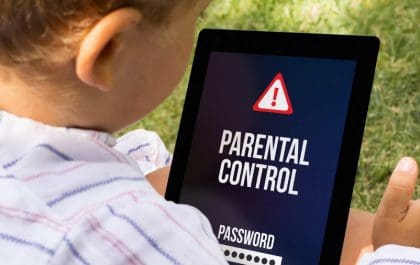Each year approximately 13,500 children in the U.S. are diagnosed with cancer. To put this into perspective, this is more than a classroom of children a day. Given these figures, it is likely that your child will eventually have a classmate who has cancer.
“The relationships children have with classmates are important. Friendships can develop that will last a lifetime. For a child who has cancer, friends are very important. Being sick and frequently absent from school for long periods of time can make them feel different and alone,” said Regina Johnson, a Social Worker at East Tennessee Children’s Hospital.
“To avoid a classmate experiencing these feelings when they return to school, explain to children that even though a classmate may be experiencing physical changes on the outside, they are still the same person inside,” Johnson said. “This will encourage children to maintain or even begin a relationship with the child who has returned.”
Talking about cancer and the differences a child is noticing in a classmate will not only help your child cope with the situation, but the child who is ill as well.
Here are some suggestions: Talk about cancer in a way a child will understand. Avoid medical terminology or scientific explanations.
- For younger children simply tell them that some cells in their friend’s body are not working the way they should so doctors are using medicine to make these cells disappear. This presents the information in a way they can comprehend, without overwhelming them.
- With older children offer more detailed information always keeping in mind the child’s ability to process the information.
Don’t avoid difficult questions like: Can the cancer come back? How long will it take for it to go away? Will they die?
- Let children know that most of the time cancer *goes away. However, some time it does come back. Cancer is different in every child so there is no way to know how long will it take for it to go away. Inform them some children do die from cancer, but doctors are getting very good at making children better (there is now an 83 percent overall survivorship).
Explain the side effects of cancer treatments and how they may be affecting a classmate. Tell them that radiation and chemotherapy can make some people feel nauseous and very tired as well as causing hair and weight loss. These treatments also make it easier for people with cancer to become sick with other illnesses. As a result, it is important to wash hands; cover coughs and sneezes (with the insides of the elbow, not the hands); not share pencils or pens, drinks or snacks to prevent this from happening. Helping a child understand what is happening to the classmate will also deal with any fear they may be experiencing.
“Your straight-forward and compassionate explanation may determine how your child deals with people suffering from cancer not just during school years, but for a lifetime.”
Assure children cancer is not contagious so it is OK to be around the classmate all they want.
Clarify that children with cancer often spend a lot of time in the hospital or at home. Suggest sending letters or cards, making an art item or visiting to help a classmate keep up with what is happening at school and see familiar faces.
“Seeing and knowing people dealing with cancer is hard,” said Johnson. “Even as an adult it is difficult knowing what to say or do to help the individual. It is even more difficult for a child who has neither the experience nor the understanding to deal with what is happening.” As a parent, you play a vital in helping your child realize what cancer is (as much as anyone can) and how the disease and treatment affects not only children, but as well adults. Your straight-forward and compassionate explanation may determine how your child deals with people suffering from cancer not just during school years, but for a lifetime.
Related posts
Newsletter Subscribe
Newest Posts
Set Up a Parental Control for Online Safety
Have you ever wondered how long your children spend in front of a device without your supervision? Yes, it is…
Adopt A Life, Save A Life
By Jeff Ashin, CEO, Young-Williams Animal Center. Photo by: Young-Williams Animal Center Are you or your child thinking of adding…

